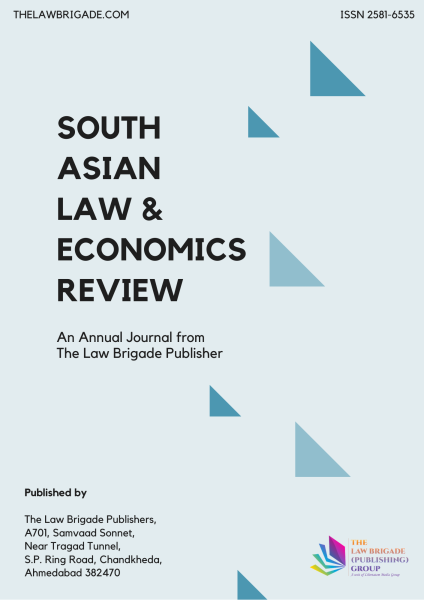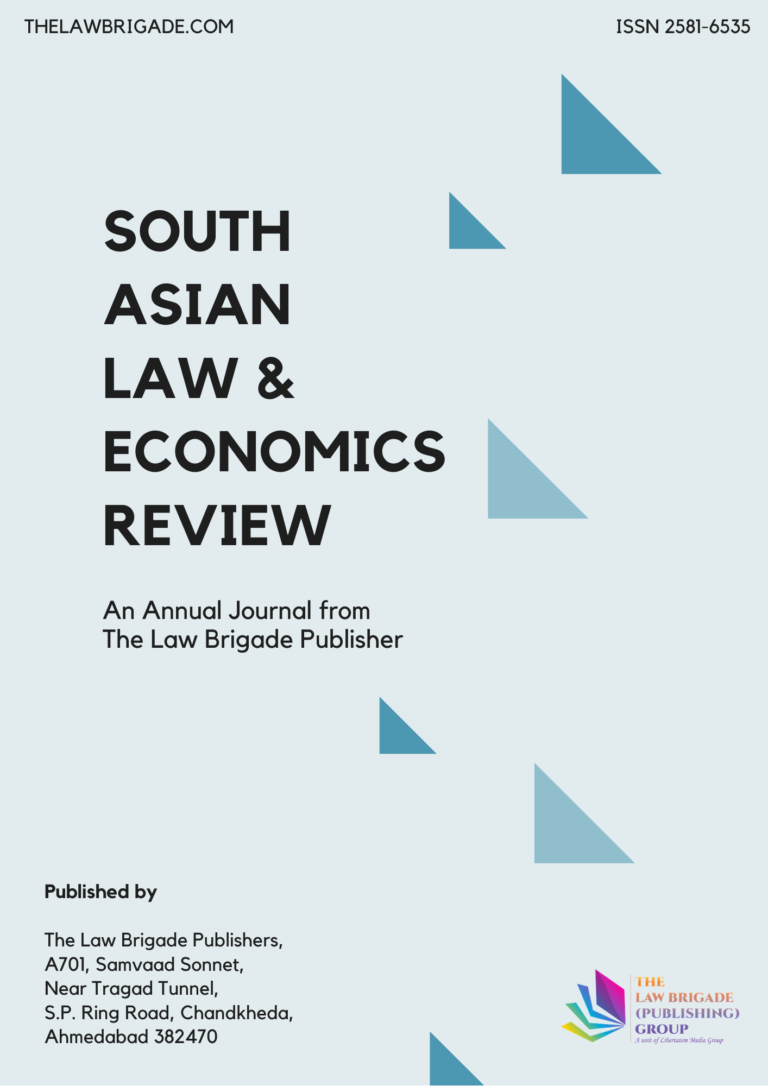- Double Blind Peer Reviewed
South Asian Law & Economics Review
South Asian Law & Economics Review is an Annual e-Journal of Law & Economics bearing ISSN: 2581-6535. The Journal covers contemporary issues of Law & Economics and is not limited to any specific topic or subject.

Cited By





Indexing Details
Archive of South Asian Law & Economics Review
Latest Publications
Revisiting US – Shrimp: Unveiling the Ambiguity Surrounding Evolutionary Interpretation and the Complexity of Unilateralism
In the complex world of international trade, decisions rendered by adjudicatory bodies, including the Appellate Body (“AB”) of the World Trade Organization (“WTO”), hold a significant position in ensuring a balance between the competing interests of Member-states. Among these decisions, the case of US – Shrimp has been celebrated as an achievement in recognizing environmental
Criticisms of Law & Economics Approach: The Perils of Indian Reality
This paper critically examines the application of Economic Analysis of Law (EAL) in the Indian legal context, focusing on two main criticisms: the reliance on market practices and the limitations of empirical and rational analysis. EAL, popularized by Richard Posner, emphasizes the efficiency of legal rules and institutions through economic theories. However, the paper argues
Criminalizing Marital Rape in India: A Bright or a Bleak Future?
Rape in all forms is considered heinous and must be criminalized with the strictest of punishments that exist. However, the entire concept of the criminalization of marital rape seems to be flawed. The debate about the criminalization of marital rape has been an ongoing one for decades together in India. The Indian notion of marital
Ensuring Justice: The Crucial Role of Notice in Fair Hearings and Judicial Oversight in India
The concept of “natural justice” provides that prior to the initiation of proceeding, the relevant authority shall ensure adequate chance to the opponent against whom matter is brought and thereby assure that they can appropriately defend their case. The foremost step is to notify the opponent which is very vital during proceeding. If a trial
Scope of Grounds for Reasonable Restrictions on the Freedom of Speech and Expression
Freedom is the condition of being free ie., set at liberty. The Preamble of the Constitution of India promotes, “Liberty of thought, expression, belief, faith and worship”. Art 19(1)(a) of the Constitution provides that all citizens shall have a right to freedom of speech and expression. Nothing in sub-clause(a) of clause (1) shall affect the
Economic Impact of India’s Transition to Net Zero
India is one of the fastest developing countries in the world and the fourth largest global emitter (Bhattacharya 2022), as per its international alliances and treaties, it must reduce its emissions by a significant amount. Net zero emissions by 2070 is a target announced by the Indian government at UN Climate Summit COP26 on November

